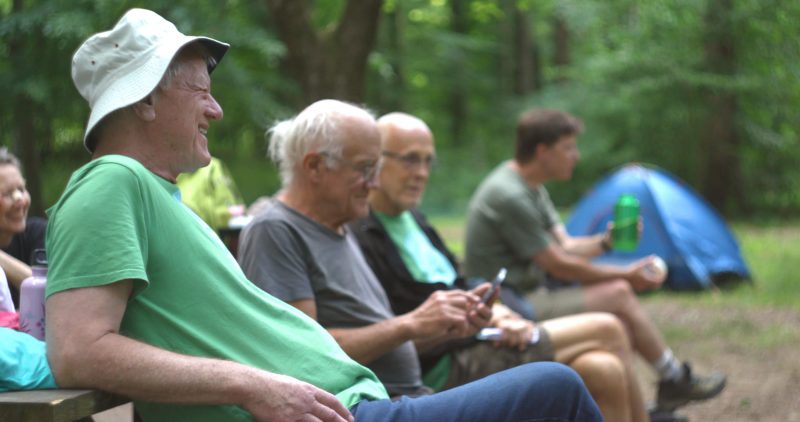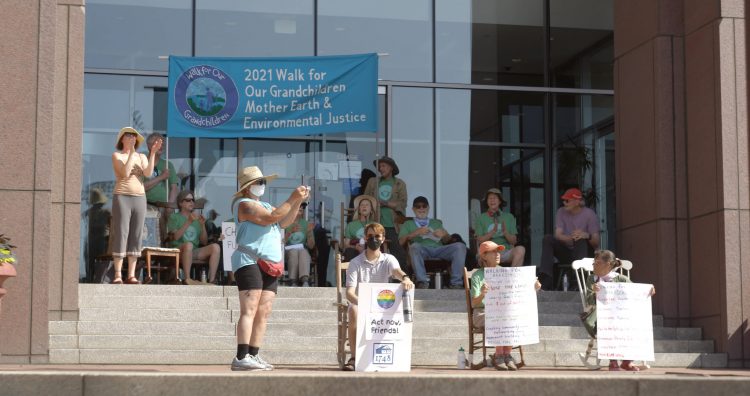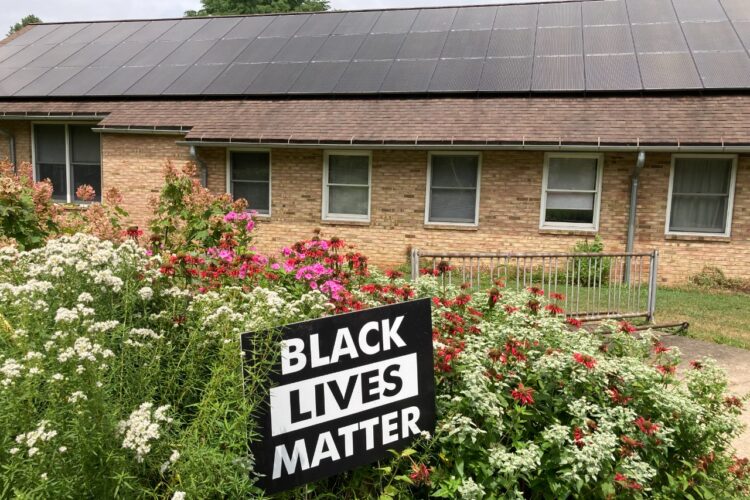Fresh Energy for Our Witness

by George Lakey.
Judging from news accounts of the recent Intergovernmental Panel on Climate Change (IPCC) report, we can expect a fresh dose of anxiety about the future to show up among Friends, even while some of us are reeling from the effects of Covid-19. The report is partly about energy needs for the economy—we might also ask: what about energy needs for human beings who feel called to change the likely scenario for Earth?
In recent dialogue with a Friend about this human energy question, I found myself recalling what I learned from the Scandinavians when researching for my book Viking Economics. The Nordics are at the top of comparative national ratings for environmental performance, as well as for other Quaker testimonies like equality, community, and peace. One source of their energy is friendly competition!
The Nordic countries often look over each others’ shoulders to find new ideas—they actually like having a learning curve. When one country, for example, sees that another is increasing sales for electric cars by subsidizing them while upping the sales tax on gasoline-driven cars, its own tax policy is likely to change.
Environmentalist Norwegians would love to see their people as much in love with bicycles as the Danes are. I remember sauntering down store-lined streets of Copenhagen and seeing not only bike racks filled, but also big stacks of bicycles leaning against the side of the store! Few people bothered with locks—bikes seem as plentiful as water.
Denmark is flat and Norway is mountainous; Norway will never catch up with the Denmark on its number of bikes per capita. However, not wishing to be outdone by the Danes, the Norwegians built a highway specifically for biking commuters to Oslo. Norway then had “the longest bike highway in the world.” And so the Scandinavians get to joshing each other while playing with ways to respond to the climate crisis. Compare this practice to trying to using fear to motivate people to change practices and policy.

A metaphor I find useful for thinking about motivation for change is the contrast between the energies of expansion and contraction. When we expand we see more, feel more, move more easily, imagine new possibilities, create, and get less tired. Love is the classic energy of expansion; we hear each other say, “My heart is opening.”
When we contract, on the other hand, we become tighter, more rigid. We find it harder to think of alternatives. We may hear someone acknowledge, “My heart is closed.” Fear is, spiritually ,the energy of contraction. If we remember times we were fearful, we might remember how exhausting that became.
The good news is that there are many choices we can make that expand us. I recently participated in the Walk for our Grandchildren: Elders and Youth on the Road to Climate Justice, walking (with van hops) from Scranton, PA to Wilmington, DE. Our goals were to encourage local environmental justice groups, make a statement about our stake in the future of our grandchildren, and encourage grandparent and President Joe Biden to go all-out for a decent climate. There were days when it was very hot. Where could we find the energy to finish the day’s walking?
We somehow knew that telling each other disaster stories wouldn’t work. What worked was turning to the energy of expansion: letting the love grow among us, finding ways to play along the way (including singing), having limited goals that enabled us—each day—to accomplish something, and looking forward to a playful action at the end: sitting in rocking chairs while blocking the doors of Chase Bank, the largest financer of fossil fuels in the US.
I’m 83. There was no way I could have finished the walk by depending on fear and sheer grit. Nor do I think our nations can find the will to change their ways by depending on fear and sheer grit. There’s a better way.
George Lakey is a member of Central Philadelphia Monthly Meeting. His Viking Economics: How the Scandinavians Got It Right and How We Can, Too is now in paperback. Also How We Win: A Guide to Nonviolent Direct Action Campaigning. Both from Melville House Publishing.

